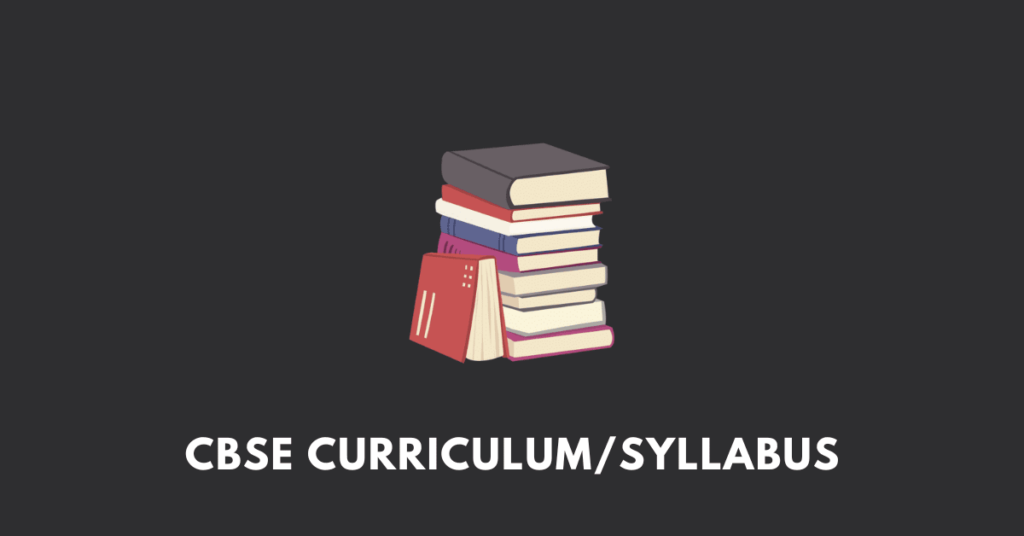
The CBSE curriculum/syllabus prescribed for the academic year 2023-2024 aims to provide a well-rounded education to students and is designed to meet the needs and expectations of the local, national, and global community. CBSE is a national board of education in India that conducts exams for students in Classes 1 to 12. The curriculum aims to provide opportunities for students to achieve excellence in learning as envisioned in the National Education Policy-2020.
Syllabus of CBSE Class 9 and Class 10
Languages (9 & 10)
Main subjects (9 & 10)
Other academic electives (9 & 10)
Subject of internal assessment (9 & 10)
Sample question papers and marking scheme (10)
| Class 9 | Class 10 |
The CBSE curriculum strives to provide ample scope for the holistic development of students, including physical, intellectual, and social development. It emphasizes constructivist learning by highlighting the importance of hands-on experience and enlists general and specific teaching and assessment objectives to make learning competency-based and attain mastery over laid down competencies. The curriculum encourages the application of knowledge and skills in real-life problem-solving scenarios and upholds the constitutional values by encouraging values-based learning activities.
The CBSE curriculum promotes 21st Century Skills, Life Skills, Financial Literacy, Digital Literacy, Health and Wellness, Road Safety, Citizenship Education, Disaster Management, and multilingualism. It integrates innovations in pedagogy such as experiential, activity-centered, joyful learning, Sport & Art-Integrated Learning, toy-based pedagogy, storytelling, gamification, etc. with technological innovations (ICT integration) to keep pace with the global trends in various disciplines. The curriculum also promotes inclusive practices as an overriding consideration in all educational activities.
Syllabus of CBSE Class 11 and Class 12
Languages (11 & 12)
Academic electives (11 & 12)
Subject of internal assessment (11 & 12)
Sample question papers and marking scheme (12)
| Class 11 | Class 12 |
The secondary curriculum provides students with a broad and balanced understanding of subjects, including languages, Mathematics, Science, and Social Science, to enable students to communicate effectively, analyze and interpret information meaningfully, make informed decisions, construct their worldview in alignment with constitutional values, and progress smoothly to be productive future citizens. The recent focus of the CBSE is on developing 21st-century skills in settings where each student feels independent, safe, and comfortable with learning.
The CBSE hopes that schools will try to align the curriculum in a way that children feel more connected to it and employ their learning in real-life contexts. To achieve this aim, it is essential that children acquire adequate knowledge and skills in other core areas like Health and Physical Education, Life Skills, Values Education, Art Education, Financial Literacy, Digital Literacy, and Work Education.

Ron’e Dutta is a journalist, teacher, aspiring novelist, and blogger. He manages Online Free Notes and reads Victorian literature. His favourite book is Wuthering Heights by Emily Bronte and he hopes to travel the world. Get in touch with him by sending him a friend request.
Get notes of other boards, classes, and subjects